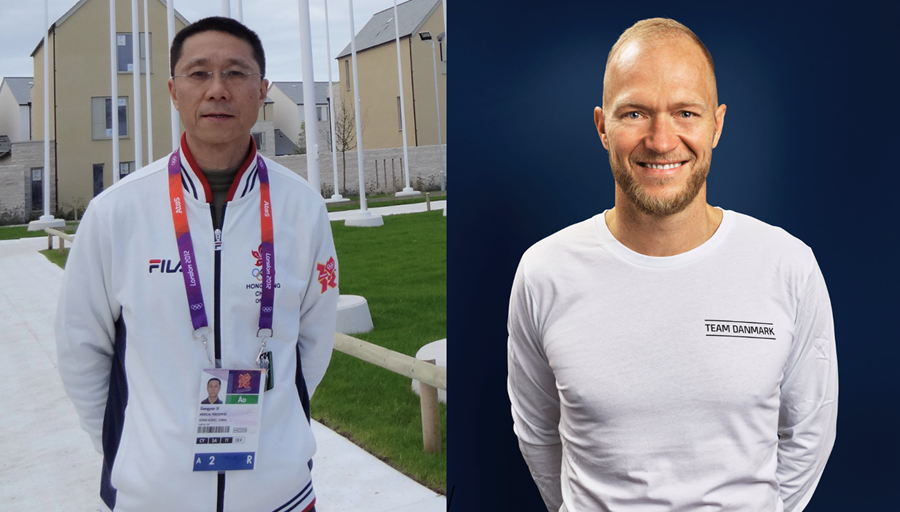Event Date: 2026-02-11
While elite athletes’ mental health is well documented, coaches and support staff receive far less attention despite facing similar performance pressures. Emerging evidence shows comparable mental health risks, underscoring the need for organisational strategies that protect entourage wellbeing.
Event Date: 2025-09-10
Youth sport offers vital opportunities for psychological growth. Professor Harwood will present how his 5C’s Framework supports athlete development by integrating psychology across coaching, parenting, and organizational systems, highlighting practical tools and ethical strategies for embedding sport psychology into youth development plans.
Event Date: 2025-06-17
This session explores NBA Mind Health, a league-wide initiative supporting mental well-being across the NBA, WNBA, G League, BAL, and 2K League. Dr. Gunter shares its origins, goals, challenges, and future, with a focus on culturally competent care.
Event Date: 2025-05-08
The talk centers on the Building Blocks of Success framework, which explores creating sustainable high-performance environments, embedding psychological demands in training, and optimizing relationship dynamics. Developed through elite sport collaborations, it offers practical strategies to enhance performance under pressure.
Event Date: 2025-02-18
The talk explores career excellence, emphasizing athletes' journeys through career stages and transitions (e.g., injury, retirement). It highlights holistic and ecological approaches, transition literacy, and shares practical "golden rules" from the speaker's scientist-practitioner experience.
Event Date: 2024-11-05
The presenter, Dr. Haberl, will offer a personal and practical perspective on pressure and mindfulness at the Olympic Games. Comparing and contrasting applied experience from 10 Olympic Games with research findings and traditional practice recommendations in the field of applied sport psychology.
Event Date: 2024-09-18
Dr. Bartley will outline USOPC's integration of Mental Health Services spanning various theoretical orientations and innovative performance psychology consultations delivered across training centers, online, and on the road. She will also provide insights into preparations for the Paris Olympics and ongoing support for Team USA athletes post-Games.
Event Date: 2024-06-18
Prof. Wylleman will explore the pivotal role of sport psychologists in athlete welfare and safeguarding at the Olympics. He'll detail the functions of NOC Welfare and Safeguarding Officers, roles emphasized since the 2022 Games, and their impact on the Paris 2024 Olympics. Insights from his experiences in Rio 2016 and Tokyo 2020 will underscore their significance.
Event Date: 2024-05-16
Prof. Hackfort explores behavior in adventurous, risky, and extreme sports, emphasizing a differentiated analysis via an action-theory perspective. He aims to clarify misconceptions, debunking labels like ‘danger-freaks.’ Through examples, he'll discuss risk behavior, stressing the importance of dual perspectives for understanding and regulating human actions in sports and beyond, highlighting strategies for risk education.
Event Date: 2024-04-03
Dr. Balague will outline the essentials of providing sport psychology services to professional teams. She will highlight the importance of engaging with all stakeholders while navigating the nuances associated with delivering applied services.
Event Date: 2024-01-30
Dr. Maher will (a) discuss how mental health (MH) can be adaptive; (b) illustrate the entire organization shares MH responsibility; (c) provide an approach to plan and evaluate MH initiatives; and (d) offer reflection on practitioners' development.
Event Date: 2023-11-16
Calligraphy as Mental Training
Event Date: 2023-09-26
Prof. Wagstaff will map the emergence of systems-led approaches for developing of psychologically informed environments. Chris will take a science-practice approach to highlight social, cultural, and historical influences on people in sport and offer considerations for practitioners.
Event Date: 2023-05-11
Recent sport psychology literature highlights the importance of developing and implementing service delivery practices grounded in the cultural and contextual frameworks within which practitioners and their clients perform.
Event Date: 2023-02-15
The protection and promotion of mental health in non-elite sport settings has become a hot topic worldwide. However, in many respects, we are barely at the starting line. This presentation will explore the ways and means through which mental health can be addressed in community sport settings – including mental health programs and mental health guidelines.
Led by Professor Artur Poczwardowski, a recognized expert in supervision and mentorship in sport psychology, this module provides a comprehensive overview of the key concepts and practices in supervision for professionals desiring to become registered supervisors with the International Society of Sport Psychology (ISSP), particularly those who may not have received supervision-specific training. The module emphasizes the foundational principles of effective supervision, including the roles and responsibilities of a supervisor, fostering supportive and developmental supervision environments, addressing ethical considerations, and maintaining alignment with ISSP standards. Special attention is given to culturally safe supervision, ensuring that supervisory practices respect and empower diverse cultural identities. The module highlights the role of supervision in enhancing professional development, ensuring quality service provision, and navigating complex dynamics within the supervisory process. By focusing on evidence-based frameworks and practical strategies, this module supports participants in building a robust understanding of supervision in sport psychology while guiding them in developing their own personal approach.
Led by the current ISSP Registry Chair, Professor Chris Harwood from Nottingham Trent University, this module covers professional conduct and ethics in sport psychology in three parts. Beginning by helping participants understand ethics, participants will be led through various common ethical issues and several emerging concerns within sport psychology service provision. Secondly, participants are asked to consider the ethical considerations that sport psychology practitioners must attend to in their work with a particular acknowledgement of the role played by their chosen model pf practice. In the final section, several scenarios are introduced to help guide participants through ethical issues they may face. Each section is punctuated by several tasks, including reflection on ethics in your own work and worked examples of ethical issues.
Join ISSP-R’s Professor Kristoffer Henriksen from the University of Southern Denmark in understanding athlete mental health in sport, beginning with an exploration of the propositions developed by an ISSP thinktank for continuing to enhance mental health support within sporting organizations. This module also provides insight into the mental health challenges faced by athletes, including prevalence rates, unique risk factors, and an explanation of how these issues may be exacerbated leading up to, during, and after major competitions. Finally, participants will learn how to support athletes’ mental health in their own applied practice. Discussed strategies include ensuring that there is adequate organizational support for athlete mental health, educating athletes on mental health and building resiliency, and using referrals when athletes’ mental ill-health is beyond applied practitioners’ scope. This module is capped off with a reflection task wherein participants are encouraged to consider the mental health supports in their organizations and how to best support athletes.
In this module, participants are guided through the tenets of cultural competence in sport psychology service provision by ISSP’s Past President Professor Gangyan Si. Participants will learn the importance of cultural sport psychology is needed and how it can be of benefit to practitioners in their service provision. Additionally, participants will learn how to ensure they are engaging in culturally safe practices that empower athletes with varied cultural identities rather than marginalize or isolate them. This module introduces the concept of reflexivity to help practitioners assess their own identities and how these may impact their work with athletes. Inclusiveness strategies are suggested to ensure practitioners are acting in a culturally competent manner to benefit their clients. This module concludes with a reflexivity assignment to help guide participants to engaging in culturally competent service provision.




















